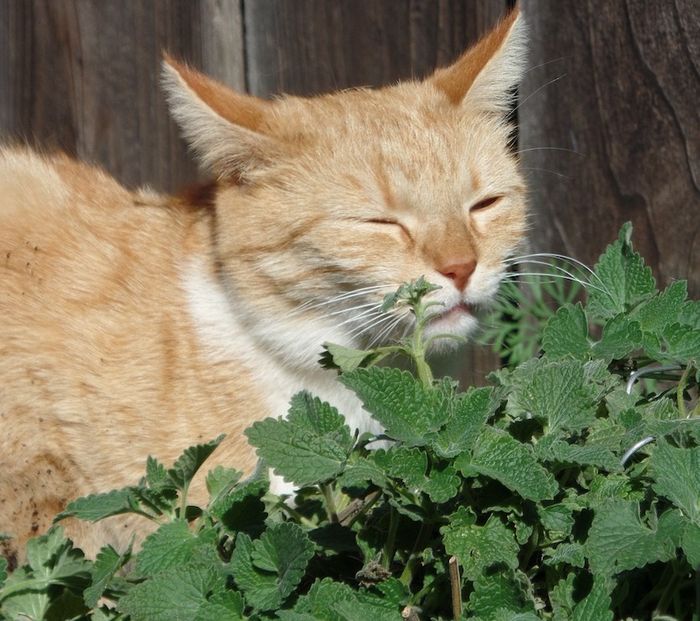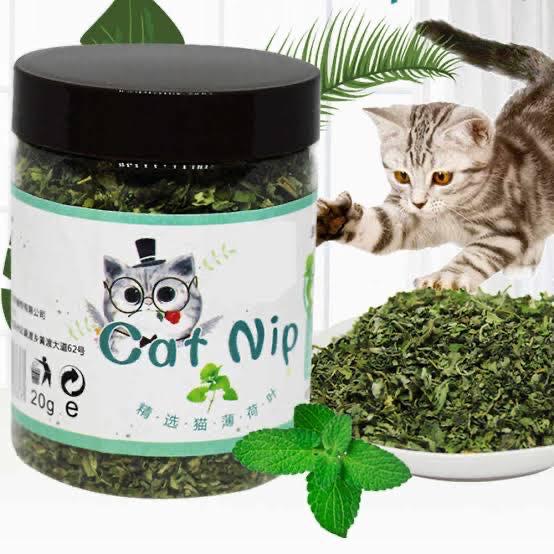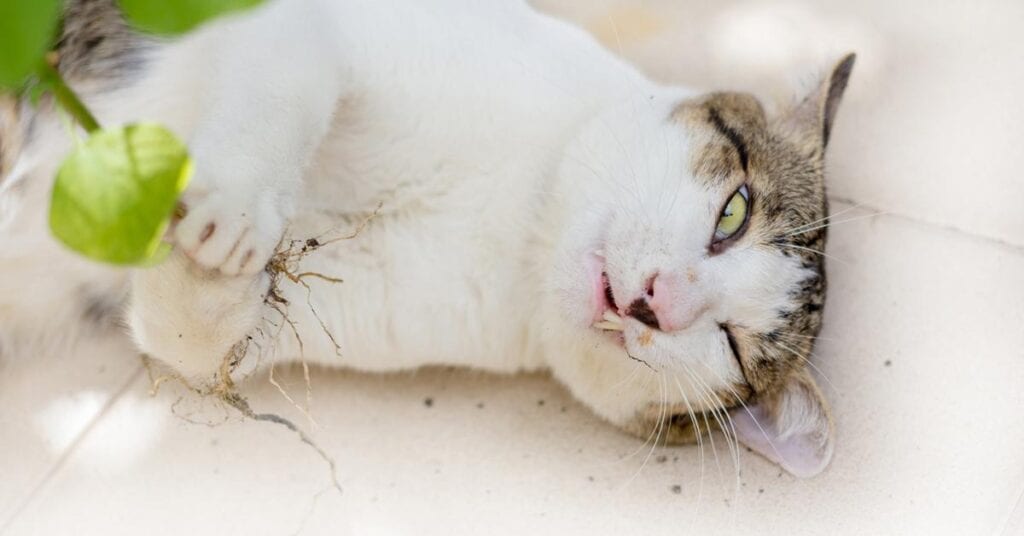Nepeta cataria, commonly known as catnip, catswort, catwort, and catmint, is a species of the genus Nepeta in the family Lamiaceae, native to southern and eastern Europe, the Middle East, Central Asia, and parts of China. It is widely naturalized in northern Europe, New Zealand, and North America.
What Does Catnip Do to Cats? How Does Catnip Work?
Cats have an extra scent organ called the vomeronasal gland in the roof of their mouth. This special pathway allows scents that are collected in the nose and mouth to be carried to the brain.
Nepetalactone is the oil that’s found within the catnip plant’s leaves that can cause behavioral changes in cats. F or a cat to be exposed to this substance, they have to smell the catnip.
Catnip mimics feline sex hormones, so cats enjoying this substance will often display behaviors similar to a female cat in heat (although both male and female cats can experience the effects).
These behaviors can include overt signs of affection, relaxation, and happiness. Other cats will display active behaviors, such as playfulness or sometimes even aggression.
For cats that have a positive experience with catnip, it can help reduce anxiety and even relieve pain.
Some veterinarians have recommended using catnip to help with separation anxiety if your cat will be home alone for an extended period of time.
Does Catnip Work on All Cats?
Not all cats will respond to the active compound in catnip. Veterinary studies suggest that about 60% of cats will have a behavioral reaction to catnip.
There is also evidence that a cat’s response to catnip is a dominant trait that’s based on genetics.
How Long Does Catnip Last?
Catnip effects will vary in length, depending on the cat. Usually, the behaviors associated with smelling catnip will last for around 10 minutes and then wear off gradually.
It could then take 30 minutes without smelling catnip for the cat to become susceptible to the effects again.
Catnip does lose its potency over time, so it is recommended to keep it in an airtight container for maximum freshness.
Can Kittens Have Catnip?
Catnip is not harmful for kittens, but most cats won’t react to catnip until they are 6 months to 1 year of age.
Some cats can be exceptions to this rule, as they will slowly increase their sensitivity over the years.
Can Cats Eat Catnip? Is It Safe?
Cats can ingest catnip, and it may even be helpful for their digestive tract.
The catnip plant has actually been used in people for its antidiarrheal properties. With this said, it is important to prevent your cat from ingesting large amounts of catnip, as this can cause digestive upset.
Can Cats Overdose on Catnip?
Too much catnip can cause health problems in cats, such as vomiting, diarrhea, dizziness, or having trouble walking. Use just a little at a time, and you can always discuss the correct amount for your cat with your veterinarian.
Fresh catnip is more potent than the dried form, so you won’t need to give your cat as much of it. It is also recommended to avoid highly concentrated catnip oils due to their potency.
How to Use Catnip
Catnip is available in many forms:
- Fresh catnip (growing your own catnip plant)
- Dried catnip
- Catnip sprays or bubbles
- Toys stuffed with dried catnip
Catnip sprays are a good option for cats that get an upset stomach from ingesting the plant. You can spray your cat’s favorite toy or cat tree or cat scratcher. You can also sprinkle dried catnip on a cat tree, scratching post, or cardboard scratcher, or you can roll a toy in it.
Credit; Wikipedia, www.petmd.com





